The Well-Tempered Ear
Beethoven’s Ninth turns 200 today
2 Comments
PLEASE HELP THE EAR. IF YOU LIKE A CERTAIN BLOG POST, SPREAD THE WORD. FORWARD A LINK TO IT OR, SHARE IT or TAG IT (not just “Like” it) ON FACEBOOK. Performers can use the extra exposure to draw potential audience members to an event. And you might even attract new readers and subscribers to the blog.
By Jacob Stockinger
Perhaps the only symphony more iconic than Beethoven’s Ninth is the Fifth Symphony by the same composer (below).
But today we celebrate the premiere of the pioneering Ninth Symphony that took place 200 years ago on May 7, 1824. Below is the original poster announcing the concert program with the premiere, which Beethoven conducted in his total deafness.
Here is a link to an anniversary story, with lots of historical background about the original performance, by the PBS affiliate WETA in Washington, D.C.:
https://weta.org/fm/classical-score/may-7-1824-200th-anniversary-premiere-beethovens-symphony-no-9
The 70-minute-long Ninth — also called the “Choral” Symphony — is a remarkable work in so many ways. It remains perhaps the most universal music ever written, meaningful to many different individuals and cultures.
Unlike most symphonies of the time, the opening does not immediately announce a theme. It seems to drift around until it finds a solid key and recognizable theme and rhythm. And then it takes off. It reminds The Ear of the depiction by Haydn, Beethoven’s teacher, in his oratorio “The Creation.”
The New York Times also has an essay by Daniel Barenboim about the meaning of Beethoven’s Ninth. No doubt that would be interesting and enlightening to read. But unfortunately the Times hides it behind a pay wall. Only subscribers get to see it right now.
Instead, here is a comprehensive look in Wikipedia:
https://en.wikipedia.org/wiki/Symphony_No._9_(Beethoven)
The famous choral setting of German poet Friedrich Schiller’s 1785 “Ode to Joy” of the last movement is also the official hymn of the European Union. This was the first use of a chorus in a symphony but would not be the last.
In Japan, the same “Ode to Joy” is sung en masse with a chorus up to 10,000 in stadiums every New Year’s Day and on other special occasions, as you can see in the YouTube video at the bottom, an event that took place after a horrendous earthquake and tsunami. The idealistic music embodies the journey from despair to hope, and to brotherhood and solidarity with all people and all nations.
Leonard Bernstein directed it in Berlin to mark the fall of the Berlin Wall and the coming of German reunification.
As its theme, the nightly Huntley-Brinkley New Report on NBC used to use the percussive, pounding, rhythmically propulsive Scherzo movement — which is The Ear’s favorite movement.
The Ear also thinks that the soulful slow movement has strong suggestions of the lovely and well-known slow movement of Beethoven’s earlier “Pathétique” piano sonata. But it doesn’t seem to have been used as a theme or in a movie soundtrack. Does anyone know differently?
What does the Ninth Symphony mean to you?
What do you think of the Ninth and how do you rank it among other symphonies?
Do you have a favorite recording or performance?
What is your favorite movement of Beethoven’s Ninth?
What other uses of The Ninth do you know of?
The Ear wants to hear
Tags: #ClassicFM, 1824, 2024, America, American, Android, anniversary, anthem, Apple, Arts, Asia, asian, audience, Beethoven, Beethoven's Fifth, Beethoven's Ninth, Berlin Wall, Bing, blog, Broadcast, brotherhood, CD, celebrate, chaos, China, Chinese, choral music, Choral Symphony, chorus, Classical, Classical music, Compact Disc, composer, Concert, conductor, culture, Daniel Barenboim, deaf, deafness, depair, different, disability, drift, duckduckgo, earthquake, en masse, European Union, Facebook, fampus, favorite, Fürtwangler, fifth, film, Friedrich Schiller, German, Germany, Google, Google Alert, Google Alerts, Google Search, Haydn, hearing disabled, hope, Huntley-Brinkley, hymn, icon, iconic, ideakistic, idealism, individual, Jacob Stockinger, Japan, Japanese, journalism, journalist, key, Korea, Korean, Leonard Bernstein, link, Ludwig van Beethoven, Madison, Madison Symphony Orchestra, May 7, mean, meaning, Microsoft, Microsoft Bing, movement, movie, Music, NBC, New Year's Day, New York Times, news, ninth, Ode to Joy, official, opening, oratorio, Orchestra, original, OS, pathetique, Pathetique Sonata, PBS, perform, performance, Piano, pioneering, poem, Poetry, Poster, premiere, program, propulsive, recording, remarkable, report, reunification, rhythm, Romantic, Safari, Scherzo, share, solidarity, soloist, Sonata, soul, soulful, soundtrack, South Korea, South Korean, stadium, Student, suggestion, symphony, tag, take off, takeoff, Teacher, Television, The Creation, The Ear, The Well-Tempered Ear, theme, tidal wave, today, Toscanini, tsunami, TV, Twitter, U.S., United States, universal, University of Wisconsin-Madison School of Music, University of Wisconsin–Madison, US, use, vocal music, wander, well-known, Well-Tempered, welltempered, WETA, Wikipedia, Wisconsin, WordPress, Wordpress.com, work, X, you, YouTube
Pianist Lang Lang gets a Hollywood star
Leave a Comment
PLEASE HELP THE EAR. IF YOU LIKE A CERTAIN BLOG POST, SPREAD THE WORD. FORWARD A LINK TO IT OR, SHARE IT or TAG IT (not just “Like” it) ON FACEBOOK. Performers can use the extra exposure to draw potential audience members to an event. And you might even attract new readers and subscribers to the blog.
By Jacob Stockinger
He is not the first classical pianist to be honored with a star on the Hollywood Walk of Fame.
But the controversial Chinese superstar Lang Lang (below) — once referred to as Bang Bang and compared to Liberace for his flamboyance and showmanship — is certainly the most popular.
As a performer, educator and philanthropist, he is also the first Asian pianist to be so honored, although The Ear is betting that his fellow Chinese and highly respected pianist Yuja Wang is not far behind him.
Lang Lang received the 2,778th star (below, in a photo by Jesse Grant of Getty Images) from the Hollywood Chamber of Commerce. He received it last week, on April 10.
His alma mater — the Curtis Institute of Music in Philadelphia, where Lang Lang studied with Gary Graffman and graduated in 2002 — is deservedly proud of him, issuing the following press release with links:
And if you missed any or all of the 49 minutes-long fluffy ceremony, in the YouTube video at the bottom is a 5-minute clip of the event, during which Lang Lang played the piano on the street.
Do you have an opinion about Lang Lang?
What do you think is his best recording?
The Ear wants to hear.
Tags: #BlogPost, #BlogPosting, #FacebookPost, #FacebookPosting, #YouTubevideo, 2002, ABC-TV, Album, alumni, alumnus, Android, Apple, Apple OS, Arts, Asia, asian, audience, Bang Bang, Bing, blog, ceremony, Chamber of Commerce, child prodigy, China, Chinese, Classical music, Concert, concerto, controversial, Curtis Institute of Music, Disney, duckduckgo, educator, entertainer, Entertainment, event, Facebook, fame, flamboyance, flamboyant, fluffy, Gary Graffman, Getty Images, Google, Google Alert, Google Alerts, Google Search, graduate, hear, Hollywood, Hollywood Walk of Fame, honor, Jacob Stockinger, Johann Sebastian Bach, Lang Lang, Liberace, link, Ludwig van Beethoven, media, Microsoft Bing, Mozart, Music, NBC-TV, opinion, Orchestra, perform, performer, philanthropist, philanthropy, Pianist, Piano, play, popular, press release, prodigy, proud, recorded music, recording, respect, respected, share, show business, showmanship, showy, star, street, study, superstar, Television, The Ear, The Well-Tempered Ear, TV, Twitter, video, Well-Tempered, Wolfgang Amadeus Mozart, WordPress, Wordpress.com, X, you, YouTube, Yuja Wang
‘Lord of the Rings’ to become an opera
Leave a Comment
PLEASE HELP THE EAR. IF YOU LIKE A CERTAIN BLOG POST, SPREAD THE WORD. FORWARD A LINK TO IT OR, SHARE IT or TAG IT (not just “Like” it) ON FACEBOOK. Performers can use the extra exposure to draw potential audience members to an event. And you might even attract new readers and subscribers to the blog.
By Jacob Stockinger
Here is something a lot of old — and especially new — opera fans should like.
The globally popular “The Lord of the Rings” — a popular set of epic fantasy books that was turned into a blockbuster movie (below) by Peter Jackson — will become a full-blown opera. Or perhaps, like Wagner’s more famous “Ring of the Nibelung” cycle, several operas.
Just this week, the J.R.R. Tolkien Estate granted permission to the British composer Paul Cofield Godfrey (below) to compose a complete opera based on the best-selling work if fantasy.
https://www.classicfm.com/music-news/lord-of-the-rings-opera-approved-tolkien-estate
Godfrey (below) has already composed some possible excerpts that will likely be used in the opera — and might have helped to persuade the Tolkien Estate to grant him permission. You can hear one — a burial dirge or “Lament for Boromir” — in the YouTube video at the bottom.
Translated into more than 38 languages with sales of more than 150 million copies, the fantasy — which met with mixed critical reaction when it was first published — has been nothing short of a phenomenon. One can justifiably expect guaranteed success of the operatic version.
For more about the history and the plot of “The Lord of the Rings’ see the Wikipedia entry:
https://en.wikipedia.org/wiki/The_Lord_of_the_Rings
Does an opera based on “The Lord of the Rings” interest you?
Do you think it will be successful?
The Ear wants to hear.
Tags: academic, alto, Android, Apple, Arts, Asia, asian, audience, baritone, bass, best-sellebest, best-selling, blockbuster, blog, Book, Boromir, British, British composer, Choir, choral music, Classic FM, Classical music, composer, Concert, copies, copy, critic, dirge, drama, duckduckgo, Earth, England, epiuc, estate, Facebook, famous, fan, fantasy, film, global, globe, Google Alert, Google Alerts, Google Search, grant, Great Britain, guarantee, History, J.R.R.Tolkien, Jacob Stockinger, lament, language, languages, like, link, Lord of the Rings, Madison, mezzosoprano, Microsoft, Microsoft Bing, million, movie, Music, musical drama, new, New Zealand, old, opera, opera-based, Orchestra, OS, Paul Cofield Godfrey, permission, Peter Jackson, Peter Jacobs, phenomenon, plot, popular, publish, published, reviews, Ring cycle, Ring of the Nibelung, sales, scholastic, sell, share, sing, singer, Singing, sold, soprano, success, successul, symphony, tag, Television, tenor, The Ear, The Lord of the Rings, The Tolkien Estate, The Well-Tempered Ear, theater, theatre, translate, TV, UK, United States, universal, vocal music, Wagner, Well-Tempered, Wisconsin, world, worldwide, YouTube
Classical music plus tips for watching Monday’s solar eclipse
2 Comments
PLEASE HELP THE EAR. IF YOU LIKE A CERTAIN BLOG POST, SPREAD THE WORD. FORWARD A LINK TO IT OR, SHARE IT or TAG IT (not just “Like” it) ON FACEBOOK. Performers can use the extra exposure to draw potential audience members to an event. And you might even attract new readers and subscribers to the blog.
By Jacob Stockinger
This coming Monday, April 8, will see a rare solar eclipse crossing the United States and visible to varying degrees (below) in different locations. In Madison, it will start at 12:50 p.m. CST, peak at 2:05 and end at 3:20.
It got The Ear to thinking about appropriate classical music to listen to.
But some other information seems more important to convey first:
For last-minute tracking of the eclipse and traveling to see it, here are stories from NPR (National Public Radio) and PBS:
https://www.pbs.org/newshour/science/how-to-watch-the-2024-total-solar-eclipse
And from, MIT (the Massachusetts Institute of Technology), here are tips in the form of a Q&A about how to make the most out of viewing the eclipse:
https://news.mit.edu/2024/qa-brian-mernoff-tips-for-viewing-solar-eclipse-0404
NASA (the National Aeronautics and Space Administration) has some advice about watching the eclipse safely:
https://science.nasa.gov/eclipses/safety
If you want to watch the eclipse in real time from a place where a total eclipse — known as totality — will take place, the PBS NewsHour will live-stream it on YouTube. Here is a link, which also allows you to set up a notification starting at noon on Monday for the real-time broadcast:
A solar eclipse is an event that inspired awe and fear. It caused our pre-historic ancestors to beat the ground with sticks and exchange stories about the wrath of the gods.
These days it leads to even more conspiracy theories by more primitive-minded, far-right conspiracy theorists. Here is an an overview from Rolling Stone magazine of the nonsense that is being promulgated by Alex Jones (below, from Getty Images) and other popular science- and fact-deniers.
The Ear looked for some music to capture the feeling of the eclipse — the mystery and awe when it is happening, and the relief when it is over.
He’s pretty sure that on the radio, internet and elsewhere you will hear excerpts from “The Planets” by Gustav Holst; the “Moonlight” Sonata by Beethoven; maybe Haydn’s “Sunrise” string quartet, “Clair de lune” by Debussy; “Morning Mood” from “Peer Gynt Suite Suite” by Edvard Grieg; “Sunrise” from the “Grand Canyon Suite” by Ferde Grofé; the beautiful sunrise opening of the “Daphnis and Chloe Suite No. 2” by Ravel; and of course the dramatic opening sunrise to “Thus Spake Zarathustra” by Richard Strauss, which was made famous in the movie “2001: A Space Odyssey.”
But The Ear settled on the “Helios Overture” (in the YouTube video at the bottom) by the Danish composer Carl Nielsen. It is a haunting performance by the Royal Concertgebouw Orchestra and the American conductor Alan Gilbert.
Do you have a piece of classical music that you think would be appropriate for watching the eclipse?
The Ear wants to hear.
Tags: #BlogPost, #BlogPosting, #FacebookPost, #FacebookPosting, #YouTubevideo, 2001: A Space Odyssey, 2024, 88.7 FM, 89.9, advice, Alan Gilbert, Alex Jones, AM, America, American, Amsterdam, ancestor, Android, annular eclipse, Apple, appropriate, April, April 8, Arts, astronomy, audience, awe, beautiful, Beethoven, blog, Broadcast, Cello, Central Daylight Time, Chamber music, choral music, Clair de Lune, Classical, Classical music, composer, Concert, Concertgebouw, conservative, conspiracy theory, CST, Danish, Daphnis and Chloe, Debussy, denier, Denmark, different, dramatic, Dutch, Early music, eclipse, Facebook, fact-denier, facts, famous, fear, film, FM, God, gods, Google Alert, Google Search, Grand Canyon, Grieg, Grofe, happen, haunting, Haydn, Helios Overture, idiots, information, Infowars, Internet, Jacob Stockinger, link, live-stream, Ludwig van Beethoven, lunatics, Madison, magazine, Massachusetts Institute of Technology, Microsoft Bing, MIT, Monday, moon, moonlight, Morning Mood, movie, Music, Musica Antiqua, mystery, NASA, National Aeronautics and Space Administration, Netherlands, Nielsen, nonsense, notification, NPR, online, opera, Orchestra, OS, over, Overture, partial, PBS, PBS Newshour, Peer Gynt, peform, performance, Piano, popular, prehistoric, primitive, Radio, rare, Ravel, relief, right-wing, Rolling Stone, royal, Royal Concertgebouw Orchestra, Schubert, science, science-denier, search engine, share, singer, Singing, solar, solar eclipse, Sonata, song, soundtrack, space, stories, story, Strauss, stream, String quartet, Suite, sun, sunrise, symphony, tag, Television, The Ear, The Well-Tempered Ear, Thus Spake Zarathustra, tips, total, totality, TV, U.S., United States, University of Wisconsin-Madison School of Music, University of Wisconsin–Madison, Viola, Violin, vocal music, watch, Well-Tempered, Wisconsin, wisconsin public radio, Wolfgang Amadeus Mozart, WORT, WORT FM, WPR, wrath, YouTube
From beginner to maestro — for the Final Forte, John DeMain reflects on a life in music
6 Comments
PLEASE HELP THE EAR. IF YOU LIKE A CERTAIN BLOG POST, SPREAD THE WORD. FORWARD A LINK TO IT OR, SHARE IT or TAG IT (not just “Like” it) ON FACEBOOK. Performers can use the extra exposure to draw potential audience members to an event. And you might even attract new readers and subscribers to the blog.
By Jacob Stockinger
This Wednesday night, March 6 at 7 p.m. in Overture Hall, is the “Final Forte” — the annual high school concerto competition with the Madison Symphony Orchestra under its longtime music director and conductor John DeMain (below, in a photo by Peter Rodgers).
You can attend the concert in person for FREE or watch it live on PBS Wisconsin or listen to it live on Wisconsin Public Radio.
For more details, go online to: https://madisonsymphony.org/education-community/education-programs/young-artist-competitions/the-final-forte/
As usual you can see and hear summary biographies of and impressive interviews with this year’s four teenage participants (below, in a photo by James Gill) and what they think of the competition. You can also read about the three judges and about past compeiutitons and the winners.
But this year, DeMain opened up about himself to PBS Wisconsin. He talks about why he likes and looks forward to directing the performances by young artists and what he thinks about starting a career in music.
DeMain — who will retire at the end of next season — also draws on his own award-winning career from his first piano lessons though his education at the Juilliard School, his lessons with Leonard Bernstein and his 30-year tenure at the MSO.
Trust The Ear — it is an engaging interview well worth reading for many reasons.
Here is a link to that interview:
Do you anything to say about how DeMain sees working with and encouraging young artists?
About his own career?
The Ear wants to hear.
Tags: Abe, Arts, audience, award-winning, Bach, Bernsteoin, biography, blog, Bolz, Bolz Young Artist Competition, career, Cello, Classical music, Competition, composer, concertmaster, concerto, conductor, Elgar, encourage, Facebook, Felix Mendelssohn, Final Forte, free, high school, in person, interview, Jacob Stockinger, Johann Sebastian Bach, John DeMain, judge, Juilliard, juror, jury, La Crosse, Lawrence University, Lawrence University Conservatory of Music, Leonard Bernstein, link, live, longtime, Madison, Madison Symphony Orchestra, Mendelssohn, Milwaukee Symphony Orchestra, Mozart, MSO, Music, Music director, Music education, music lessons, online, opera, Orchestra, Oregon, Overture Center, participant, PBS, PBS Wisconsin, percussion, Piano, piano lessons, Prism, professional, Radio, Retirement, Saint-Saens, share, Stevens Point, symphony, tag, Television, tenure, The Ear, trust, TV, United States, University of Wisconsin-Madison School of Music, Violin, Website, Wisconsin, wisconsin public radio, Wisconsin Public Television, Wolfgang Amadeus Mozart, WPR
Here are the classical music winners of the 2023 Grammy awards
1 Comment
PLEASE HELP THE EAR. IF YOU LIKE A CERTAIN BLOG POST, SPREAD THE WORD. FORWARD A LINK TO IT OR, SHARE IT or TAG IT (not just “Like” it) ON FACEBOOK. Performers can use the extra exposure to draw potential audience members to an event. And you might even attract new readers and subscribers to the blog.
By Jacob Stockinger
The 2023 Grammy — officially known as the 66th Grammy Awards — took place on live TV Sunday night.
Big surprise: pop singer Taylor Swift — she of the $1,000 concert tickets, Kansas City Chiefs skybox and crazy right-wing conspiracy theories about about how she and the NFL are plotting to rig the Super Bowl and re-elect President Biden — dominated and took home a record-breaking fourth Album of the Year for “Midnights.”
In addition, all of the main events — the live performances — that aired on CBS were non-classical.
Does anyone else think that demonstrates just in what disregard — aside from atoning for past neglect of women, composers and performers of color, and contemporary compositions — most classical music is being held right now?
We must not forget that the Grammys are industry awards, designed to recognize and promote sales and profit above and beyond artistic merit, although the two aims sometimes coincide.
That lack of respect also seems demonstrated by the fact that if you go to the website with the complete list for Grammy winners and nominees, the classical Grammys rank dead last. Ahead of classical you will find (in rough order): pop; electronic dance; rock; alternative; rhythm and blues; rap; spoken word; jazz; Latin; contemporary; roots; bluegrass; blues; folk; gospel; Christian; global; African; reggae; new age; children’s; comedy; audiobook; soundtrack; video games; and album notes.
But enough grousing.
Or maybe not.
Anyway, if you want to see that complete listing of the winners along with the nominees, here is a link: https://www.grammy.com/awards/66th-annual-grammy-awards-2023
And excerpted from that list of the nominees and winners of the Grammy Awards are the winners, which have been capitalized and boldfaced.
87. Best Orchestral Performance
Award to the Conductor and to the Orchestra.
ADÈS: DANTE
Gustavo Dudamel, conductor (Los Angeles Philharmonic)
Bartók: Concerto For Orchestra; Four Pieces
Karina Canellakis, conductor (Netherlands Radio Philharmonic Orchestra)
Price: Symphony No. 4; Dawson: Negro Folk Symphony
Yannick Nézet-Séguin, conductor (The Philadelphia Orchestra)
Scriabin: Symphony No. 2; The Poem Of Ecstasy
JoAnn Falletta, conductor (Buffalo Philharmonic Orchestra)
Stravinsky: The Rite Of Spring
Esa-Pekka Salonen, conductor (San Francisco Symphony)
88. Best Opera Recording
Award to the Conductor, Album Producer(s) and Principal Soloists, and to the Composer and Librettist (if applicable) of a world premiere Opera recording only.
BLANCHARD: CCHAMPION
Yannick Nézet-Séguin, conductor; Ryan Speedo Green, Latonia Moore & Eric Owens; David Frost, producer (The Metropolitan Opera Orchestra; The Metropolitan Opera Chorus)
Corigliano: The Lord Of Cries
Gil Rose, conductor; Anthony Roth Costanzo, Kathryn Henry, Jarrett Ott & David Portillo; Gil Rose, producer (Boston Modern Orchestra Project & Odyssey Opera Chorus)
Little: Black Lodge
Timur; Andrew McKenna Lee & David T. Little, producers (The Dime Museum; Isaura String Quartet)
89. Best Choral Performance
Award to the Conductor, and to the Choral Director and/or Chorus Master where applicable and to the Choral Organization/Ensemble.
Carols After A Plague
Donald Nally, conductor (The Crossing)
The House Of Belonging
Craig Hella Johnson, conductor (Miró Quartet; Conspirare)
Ligeti: Lux Aeterna
Esa-Pekka Salonen, conductor (San Francisco Symphony Chorus)
Rachmaninoff: All-Night Vigil
Steven Fox, conductor (The Clarion Choir)
SAARIAHO: RECONNAISANCE
Nils Schweckendiek, conductor (Uusinta Ensemble; Helsinki Chamber Choir)
90. Best Chamber Music/Small Ensemble Performance
For new recordings of works with chamber or small ensemble (twenty-four or fewer members, not including the conductor). One Award to the ensemble and one Award to the conductor, if applicable.
American Stories
Anthony McGill & Pacifica Quartet
Beethoven For Three: Symphony No. 6, ‘Pastorale’ And Op. 1, No. 3; Yo-Yo Ma, Emanuel Ax & Leonidas Kavakos
Between Breaths
Third Coast Percussion
ROUGH MAGIC
Roomful Of Teeth
Uncovered, Vol. 3: Coleridge-Taylor Perkinson, William Grant Still & George Walker
Catalyst Quartet
91. Best Classical Instrumental Solo
Award to the Instrumental Soloist(s) and to the Conductor when applicable.
Adams, John Luther: Darkness And Scattered Light
Robert Black
Akiho: Cylinders
Andy Akiho
THE AMERICAN PROJECT
Yuja Wang; Teddy Abrams, conductor (Louisville Orchestra)
Difficult Grace
Seth Parker Woods
Of Love
Curtis Stewart
92. Best Classical Solo Vocal Album
Award to: Vocalist(s), Collaborative Artist(s) (Ex: pianists, conductors, chamber groups) Producer(s), Recording Engineers/Mixers with greater than 50% playing time of new material.
Because
Reginald Mobley, soloist; Baptiste Trotignon, pianist
Broken Branches
Karim Sulayman, soloist; Sean Shibe, accompanist
40@40
Laura Strickling, soloist; Daniel Schlosberg, pianist
Rising
Lawrence Brownlee, soloist; Kevin J. Miller, pianist
WALKING IN THE DARK
Julia Bullock, soloist; Christian Reif, conductor (Philharmonia Orchestra)
93. Best Classical Compendium
Award to the Artist(s) and to the Album Producer(s) and Engineer(s) of over 50% playing time of the album, and to the Composer and Librettist (if applicable) with over 50% playing time of a world premiere recording only.
Fandango
Anne Akiko Meyers; Gustavo Dudamel, conductor; Dmitriy Lipay, producer
Julius Eastman, Vol. 3: If You’re So Smart, Why Aren’t You Rich?
Christopher Rountree, conductor; Lewis Pesacov, producer
Mazzoli: Dark With Excessive Bright
Peter Herresthal; Tim Weiss, conductor; Hans Kipfer, producer
PASSION FOR BACH AND COLTRANE
Alex Brown, Harlem Quartet, Imani Winds, Edward Perez, Neal Smith & A.B. Spellman; Silas Brown & Mark Dover, producers
Sardinia
Chick Corea; Chick Corea & Bernie Kirsh, producers
Sculptures
Andy Akiho; Andy Akiho & Sean Dixon, producers
Zodiac Suite
Aaron Diehl Trio & The Knights; Eric Jacobsen, conductor; Aaron Diehl & Eric Jacobsen, producers
94. Best Contemporary Classical Composition
A Composer’s Award. (For a contemporary classical composition composed within the last 25 years, and released for the first time during the Eligibility Year.) Award to the librettist, if applicable.
Adès: Dante
Thomas Adès, composer (Gustavo Dudamel & Los Angeles Philharmonic)
Akiho: In That Space, At That Time
Andy Akiho, composer (Andy Akiho, Ankush Kumar Bahl & Omaha Symphony)
Brittelle: Psychedelics
William Brittelle, composer (Roomful Of Teeth)
Mazzoli: Dark With Excessive Bright
Missy Mazzoli, composer (Peter Herresthal, James Gaffigan & Bergen Philharmonic)
MONTGOMERY: ROUNDS (in the YouTube video below)
Jessie Montgomery, composer (Awadagin Pratt, A Far Cry & Roomful Of Teeth)
Tags: #BlogPost, #BlogPosting, #FacebookPost, #FacebookPosting, #YouTubevideo, African, album notes, Amazon Music, Android, Anne Akiko Meyers, Anthony McGill, Apple Music, Apple Music Classical, arrangement, Arts, Asia, asian, atone, audience, audiobook, Awadagin Pratt, Bach, Barbie, Baroque, Bartok, Beethoven, Bergen, best, black, blog, bluegrass, blues, brown, Buffalo Symphony Orchestra, CBS, CBS-TV, cellist, Cello, Chamber music, Chick Corea, children, children's, China, Chinese, choral music, Christian, Classical music, Coleridge-Taylor Perkinson, Coltrane, comedy, composer, Concert, concerto, conductor, conservative, conspiracy theory, contemporary, contemporary music, Corigliano, country, crazy, Dante, disregard, disrespect, Donald Trump, Early music, electronic dance, Emanuel Ax, Esa-Pekka Salonen, Europe, Facebook, Florence Price, folk, football, fusion, George Walker, global, gospel, Grammy, Grammy Awards, Gustavo Dudamel, Harlem, hip-hop, industry, Jacob Stockinger, Japanese, Japoan, Jazz, Jessie Montgomery, JoAnn Falletta, John Coltrane, John Corigliano, Julia Bullock, Kaija Saariaho, Kansas City Chiefs, Latin, Lawrence Brownlee, Leonidas Kavakos, Ligeti, livde broadcast, Los Angeles Philharmonic, Louisville Orchestra, Metropolitan Opera, Miley Cyrus, Missy Mazzoli, Music, Musical theater, National Football League, neglect, New Age, NFL, Norway, opera, Orchestra, OS, Pacific Quartet, Passion, performance, performer, Philadelphia Orchestra, Philharmonia Orchestra, Pianist, Piano, Piano Trio, pop, President Biden, profit, promote, promotion, psychedelic, Rachmaninoff, Rachmaninov, recorded music, reggae, right-wing, Rock, Roomful of Teeth, root, sales, San Francisco Symphony, Scriabin, share, singer, singers, Singing, skybox, snub, soloist, soundtrack, spoken word, Spotify, Stravinsky, streaming, String quartet, symphony, Taylor Swift, Television, Terrence Blanchard, The Ear, The Knights, Third Coast Percussion, Thomas Ades, ticket, transcription, TV, United States, University of Wisconsin-Madison School of Music, University of Wisconsin–Madison, video games, Viola, Violin, violinist, vocal music, William Grant Still, Wisconsin, Wolfgang Amadeus Mozart, women, Yannick Nézet-Séguin, Yo-Yo Ma, YouTube, Yuja Wang, Zodiac
20 women composers talk about classical music
2 Comments
PLEASE HELP THE EAR. IF YOU LIKE A CERTAIN BLOG POST, SPREAD THE WORD. FORWARD A LINK TO IT OR, SHARE IT or TAG IT (not just “Like” it) ON FACEBOOK. Performers can use the extra exposure to draw potential audience members to an event. And you might even attract new readers and subscribers to the blog.
By Jacob Stockinger
What do women composers think about themselves, their careers and the place they occupy in the world of classical music?
Here are quotes — with YouTube videos, great vintage still photographs and musical excerpts — by 20 women composers throughout history from Hildegard von Bingen in the Middle Ages to contemporary living composers such as Americans Joan Tower, Missy Mazzoli, Jennifer Higdon and Jessie Montgomery.
That many of the names will seem familiar to many readers is a sign of how the “canon” has expanded in recent years and brought a new appreciation of neglected women composers, many of whom have been completely overlooked but are now featured prominently on concert programs and radio shows.
Mind you, insightful observations and great quotes about sexism, racism, ambition, creativity and history don’t guarantee music of superior quality.
But their music has to be played and listened to before it can be judged.
The Ear found this collection well worth paying attention to by men as well as women, especially young ones pursuing a career in music. Everyone can use a little inspiration and encouragement.
Here is a link to the website based in Hong Kong, China that has the story:
What about Louise Ferrenc or Florence Price?
Barbara Strozzi and Asian women?
Are there other names you would include?
What do you think of the collage of quotes, music and videos?
The Ear wants to hear.
Tags: #BlogPost, #BlogPosting, #FacebookPost, #FacebookPosting, #YouTubevideo, Africa-American, America, American, Amy Beach, appreciation, Arts, Asia, asian, audience, Barbara Strozzi, Baroque, Beethoven, Bettina von Arnim, Black composers, Brazil, Brazilian, British, Canon, careers, Cecile Chaminade, Cello, Chamber music, China, Chinese, choral music, Clara Schumann, Clara Wieck Schumann, Classical music, collage, composer, Concert, concert program, concerto, contemporary, Early music, encouragement, English, equal rights, Ethel Smyth, excerpts, Facebook, familiar, Fanny Mendelssohn, Fanny Mendelssohn Hensel, feminism, feminist, Florence Price, forgotten, France, French, Germaine Tailleferre, German, Germany, Grazyna Bacewicz, Great Britain, guarantee, Hildegard von Bingen, History, Hong Kong, insight, inspiration, Italian, Italy, Jacob Stockinger, Japan, Japanese, Jennifer Higdon, Jessie Montgomery, Joan Tower, judge, Julia Perry, Kassia, Korea, Korean, link, living, Louise Ferrenc, Ludwig van Beethoven, Madison, Madison Symphony Orchestra, Margaret Bonds, Marie Jaëll, Medieval, Middle Ages, Missy Mazzoli, Mozart, Music, music students, neglected, opera, Orchestra, overlooked, Overture Center, PBS, People's Republic of China, performances, performer, photographs, Pianist, Piano, place, play, Poland, Polish, PRC, public television, quality, racisim, Radio, radio show, Rebecca Clarke, Russia, Russian, Sexism, share, singers, Sonata, Soviet, symphony, tag, Television, Teresa Carreño, The Ear, think, U.K., UK, Undine Smith Moore, United States, University of Wisconsin-Madison School of Music, vintage, Violin, vocal music, Wisconsin, wisconsin public radio, Wisconsin Public Television, Wolfgang Amadeus Mozart, women, women composers, world, WORT-FM 89.9, WPR, WPT, young, YouTube
Here are the classical music nominees for the 2024 Grammy Awards
Leave a Comment
PLEASE HELP THE EAR. IF YOU LIKE A CERTAIN BLOG POST, SPREAD THE WORD. FORWARD A LINK TO IT OR, SHARE IT or TAG IT (not just “Like” it) ON FACEBOOK. Performers can use the extra exposure to draw potential audience members to an event. And you might even attract new readers and subscribers to the blog.
By Jacob Stockinger
The 2024 GRAMMYs, officially known as the 66th GRAMMY Awards (below, illustration courtesy of the Recoding Academy), will air live (8:00-11:30 PM, LIVE ET/5:00-8:30 PM, LIVE PT) on the CBS Television Network.
The show will also stream on Paramount+ (live and on demand for Paramount+ with SHOWTIME subscribers, or on demand for Paramount+ Essential subscribers the day after the special airs).
You’ll notice by the number of the categories that classical music is at the bottom of the list. The Grammys are intended primarily to promote important and profitable contributions to the industry as well as the quality of the music and performances.
For a complete list of all the categories and major nominees — including nominations for superstar Taylor Swift and the smash hit movie “Barbie” — go to: https://www.grammy.com/news/2024-grammys-nominees-record-of-the-year.
Here is a listing of the classical music nominations, which were announced yesterday, Friday, Nov. 10, 2023. The list can be helpful if you are looking for new recording to buy or stream. You can also hear promos and excerpts of most of the nominees on YouTube.
For a listing of previous classical music winners, go to: https://www.grammy.com/music-genre/classical. Click on the lower button that says “ALL NOMINATIONS FROM THIS GENRE.”
87. Best Orchestral Performance
Award to the Conductor and to the Orchestra.
Adès: Dante
Gustavo Dudamel, conductor (Los Angeles Philharmonic)
Bartók: Concerto For Orchestra; Four Pieces
Karina Canellakis, conductor (Netherlands Radio Philharmonic Orchestra)
Price: Symphony No. 4; Dawson: Negro Folk Symphony
Yannick Nézet-Séguin, conductor (The Philadelphia Orchestra)
Scriabin: Symphony No. 2; The Poem Of Ecstasy
JoAnn Falletta, conductor (Buffalo Philharmonic Orchestra)
Stravinsky: The Rite Of Spring
Esa-Pekka Salonen, conductor (San Francisco Symphony)
88. Best Opera Recording
Award to the Conductor, Album Producer(s) and Principal Soloists, and to the Composer and Librettist (if applicable) of a world premiere Opera recording only.
Blanchard: Champion
Yannick Nézet-Séguin, conductor; Ryan Speedo Green, Latonia Moore & Eric Owens; David Frost, producer (The Metropolitan Opera Orchestra; The Metropolitan Opera Chorus)
Corigliano: The Lord Of Cries
Gil Rose, conductor; Anthony Roth Costanzo, Kathryn Henry, Jarrett Ott & David Portillo; Gil Rose, producer (Boston Modern Orchestra Project & Odyssey Opera Chorus)
Little: Black Lodge
Timur; Andrew McKenna Lee & David T. Little, producers (The Dime Museum; Isaura String Quartet)
89. Best Choral Performance
Award to the Conductor, and to the Choral Director and/or Chorus Master where applicable and to the Choral Organization/Ensemble.
Carols After A Plague
Donald Nally, conductor (The Crossing)
The House Of Belonging
Craig Hella Johnson, conductor (Miró Quartet; Conspirare)
Ligeti: Lux Aeterna
Esa-Pekka Salonen, conductor (San Francisco Symphony Chorus)
Rachmaninoff: All-Night Vigil
Steven Fox, conductor (The Clarion Choir)
Saariaho: Reconnaissance
Nils Schweckendiek, conductor (Uusinta Ensemble; Helsinki Chamber Choir)
90. Best Chamber Music/Small Ensemble Performance
For new recordings of works with chamber or small ensemble (twenty-four or fewer members, not including the conductor). One Award to the ensemble and one Award to the conductor, if applicable.
American Stories
Anthony McGill & Pacifica Quartet
Beethoven For Three: Symphony No. 6, ‘Pastorale’ And Op. 1, No. 3
Yo-Yo Ma, Emanuel Ax & Leonidas Kavakos
Between Breaths
Third Coast Percussion
Rough Magic
Roomful Of Teeth
Uncovered, Vol. 3: Coleridge-Taylor Perkinson, William Grant Still & George Walker
Catalyst Quartet
91. Best Classical Instrumental Solo
Award to the Instrumental Soloist(s) and to the Conductor when applicable.
Adams, John Luther: Darkness And Scattered Light
Robert Black
Akiho: Cylinders
Andy Akiho
The American Project
Yuja Wang; Teddy Abrams, conductor (Louisville Orchestra)
Difficult Grace
Seth Parker Woods
Of Love
Curtis Stewart
92. Best Classical Solo Vocal Album
Award to: Vocalist(s), Collaborative Artist(s) (Ex: pianists, conductors, chamber groups) Producer(s), Recording Engineers/Mixers with greater than 50% playing time of new material.
Because
Reginald Mobley, soloist; Baptiste Trotignon, pianist
Broken Branches
Karim Sulayman, soloist; Sean Shibe, accompanist
40@40
Laura Strickling, soloist; Daniel Schlosberg, pianist
Rising
Lawrence Brownlee, soloist; Kevin J. Miller, pianist
Walking In The Dark
Julia Bullock, soloist; Christian Reif, conductor (Philharmonia Orchestra)
93. Best Classical Compendium
Award to the Artist(s) and to the Album Producer(s) and Engineer(s) of over 50% playing time of the album, and to the Composer and Librettist (if applicable) with over 50% playing time of a world premiere recording only.
Fandango
Anne Akiko Meyers; Gustavo Dudamel, conductor; Dmitriy Lipay, producer
Julius Eastman, Vol. 3: If You’re So Smart, Why Aren’t You Rich?
Christopher Rountree, conductor; Lewis Pesacov, producer
Mazzoli: Dark With Excessive Bright
Peter Herresthal; Tim Weiss, conductor; Hans Kipfer, producer
Passion For Bach And Coltrane
Alex Brown, Harlem Quartet, Imani Winds, Edward Perez, Neal Smith & A.B. Spellman; Silas Brown & Mark Dover, producers
Sardinia
Chick Corea; Chick Corea & Bernie Kirsh, producers
Sculptures
Andy Akiho; Andy Akiho & Sean Dixon, producers
Zodiac Suite
Aaron Diehl Trio & The Knights; Eric Jacobsen, conductor; Aaron Diehl & Eric Jacobsen, producers
94. Best Contemporary Classical Composition
A Composer’s Award. (For a contemporary classical composition composed within the last 25 years, and released for the first time during the Eligibility Year.) Award to the librettist, if applicable.
Adès: Dante
Thomas Adès, composer (Gustavo Dudamel & Los Angeles Philharmonic)
Akiho: In That Space, At That Time
Andy Akiho, composer (Andy Akiho, Ankush Kumar Bahl & Omaha Symphony)
Brittelle: Psychedelics
William Brittelle, composer (Roomful Of Teeth)
Mazzoli: Dark With Excessive Bright
Missy Mazzoli, composer (Peter Herresthal, James Gaffigan & Bergen Philharmonic)
Montgomery: Rounds
Jessie Montgomery, composer (Awadagin Pratt, A Far Cry & Roomful Of Teeth)
Do you know any of these Grammy nominations?
What one do you recommend or think should win?
The Ear wants to hear.
Tags: #BlogPost, #BlogPosting, #FacebookPost, #FacebookPosting, #YouTubevideo, academy, accompanist, accompany, Adès, African American, Album, America, American, Anne Akiko Meyers, Anthony McGill, Apple, Arts, audience, Awadagin Pratt, Bach, Barbie, Baroque, Bartok, Beethoven, Bergen, best, black, blog, blues, Boston, California, Carol, Catalyst Quartet, CBS, Cedille Records, cellist, Cello, Chamber music, champion, Chick Corea, choral music, Classical music, Coleridge-Taylor Perkinson, Coltrane, compendium, composer, Concert, concerto, conductor, contemporary composer, contemporary music, Corigliano, cries, Dante, drugs, Early music, Emanuel Ax, ensemble, Essa-Pekka Salonen, Europe, Facebook, Fandango, female, film, Finland, Florence Price, folk, genre, George Walker, Google, grace, Grammy Award, Grammys, Gustavo Dudamel, Harlem, Helsinki, Imani Winds, industry, Jacob Stockinger, Jazz, Jessie Montgomery, JoAnn Falletta, Johann Sebastian Bach, John Luther Adams, Latin, Leonidas Kavakos, Ligeti, link, live, Lord, Los Angeles Philharmonic, Louisville Orchestra, Love, Ludwig van Beethoven, Madison, Madison Symphony Orchestra, Mazzoli, Metropolitan Orchestra, movie, Mozart, Music, Negro, network, nomination, nominee, Norway, opera, Orchestra, Overture Center, Pacifica Quartet, paramount, percussion, performance, Philadelphia Orchestra, Philharmonia Orchestra, Pianist, Piano, Piano Trio, plague, pop, producer, profitable, promote, psychedelics, quality, Rachmaninoff, Rachmaninov, recorded music, Rock, Roomful of Teeth, Saariaho, San Francisco, Scriabin, share, Showtime, singer, Singing, solo, Sonata, soundtrack, space, stories, story, Stravinsky, stream, String quartet, Suite, symphony, tag, Taylor Swift, Television, Terrence Blanchard, The Ear, The Knights, the Met, Third Coast Percussion, time, trio, United States, University of Wisconsin-Madison School of Music, University of Wisconsin–Madison, Viola, Violin, violinist, vocal music, Website, William Dawson, Willian Grant Still, Wisconsin, Wolfgang Amadeus Mozart, women, world premiere, Yannick Nézet-Séguin, Yo-Yo Ma, YouTube, Yuja Wang, Zodiac
UW-Madison master bassist Richard Davis dies at 93
Leave a Comment
PLEASE HELP THE EAR. IF YOU LIKE A CERTAIN BLOG POST, SPREAD THE WORD. FORWARD A LINK TO IT OR, SHARE IT or TAG IT (not just “Like” it) ON FACEBOOK. Performers can use the extra exposure to draw potential audience members to an event. And you might even attract new readers and subscribers to the blog.
By Jacob Stockinger
First I saw him — particularly standing out because he was one of the very few Black professors on campus at that time.
Then I heard about him.
He was a prize-winning, critically acclaimed jazz bassist who was nationally and internationally famous and freelanced even while at the university.
But the first time I actually heard Richard Davis (below and in the YouTube video of a Fox News feature at the bottom) perform live at the University of Wisconsin-Madison, where he taught for decades after his arrival in 1977, he was playing in a small chamber orchestra that accompanied a cantata by Johann Sebastian Bach.
It was a memorable and outstanding performance perfectly suited to the Baroque style of the music, far from the top-notch jazz combos, rock bands, symphony orchestras, conductors and individual star singers that he usually played with.
I don’t think I ever saw or heard met a more complete musician, and I doubt I ever will. It is hard to think of a skill Davis hadn’t mastered — whether it was composing, improvising, performing, recording or teaching.
Davis died last Wednesday — ironically on the first day of classes of the fall semester at the UW-Madison— after spending two years in hospice care. He was 93.
He received a major obituary in The New York Times. Here is a link (you might have to register):
And here is a link to his extended biography, with a discography and an impressive list of awards and honors, in Wikipedia:
https://en.wikipedia.org/wiki/Richard_Davis_(bassist)
Did you ever hear Davis live or on a recording? In what kind of music?
Did you ever perform or study with him?
What was he like as a person and an artist?
The Ear wants to hear.
Tags: #BlogPost, #BlogPosting, #FacebookPost, #FacebookPosting, #YouTubevideo, accompany, Ahmad Jamal, artist, Arts, audience, award, Bach, band, Baroque, bass, bassist, biography, black, blog, Bruce Springsteen, Campus, Cantata, Chamber music, Chicago, Chicago Symphony Orchestra, choral music, class, Classical music, combo, complete, compose, composer, Concert, concerto, conductor, CSO, Dexter Gordon, discography, Early music, Education, Elvin Jones, Eric Dolphy, Facebook, faculty, famous, feature, Fox News, Frank Sinatra, freelance, freelancer, Gunter Schuller, honors, hospice, Igor Stravinsky, improvise, international, Jacob Stockinger, Jazz, Jazz Master, Johann Sebastian Bach, Leonard Bernstein, Leopold Stokowski, link, Madison, Mead Witter School of Music, Miles Davis, muse, Muse Records, Music, Music education, Musician, national, National Endowment for the Arts, NEA, New York City, New York Times, obituary, opera, Orchestra, perform, person, Pierre Boulez, professor, race, record, recording, rhythm section, Richard Davis, Rock, Sarah Vaughan, School of Music, semester, share, singer, Singing, skill, Sonata, star, symphony, tag, teach, Teacher, Television, The Ear, time, Tony Bennett, tough love, TV, United States, University of Wisconsin, University of Wisconsin–Madison, Van Morrison, vocal music, Wikipedia, Wisconsin, YouTube
- May 2024
- April 2024
- March 2024
- February 2024
- January 2024
- December 2023
- November 2023
- October 2023
- September 2023
- August 2023
- July 2023
- June 2023
- May 2023
- April 2023
- March 2023
- February 2023
- January 2023
- December 2022
- October 2022
- September 2022
- June 2022
- May 2022
- April 2022
- March 2022
- July 2021
- June 2021
- May 2021
- April 2021
- March 2021
- February 2021
- January 2021
- December 2020
- November 2020
- October 2020
- September 2020
- August 2020
- July 2020
- June 2020
- May 2020
- April 2020
- March 2020
- February 2020
- January 2020
- December 2019
- November 2019
- October 2019
- September 2019
- August 2019
- July 2019
- June 2019
- May 2019
- April 2019
- March 2019
- February 2019
- January 2019
- December 2018
- November 2018
- October 2018
- September 2018
- August 2018
- July 2018
- June 2018
- May 2018
- April 2018
- March 2018
- February 2018
- January 2018
- December 2017
- November 2017
- October 2017
- September 2017
- August 2017
- July 2017
- June 2017
- May 2017
- April 2017
- March 2017
- February 2017
- January 2017
- December 2016
- November 2016
- October 2016
- September 2016
- August 2016
- July 2016
- June 2016
- May 2016
- April 2016
- March 2016
- February 2016
- January 2016
- December 2015
- November 2015
- October 2015
- September 2015
- August 2015
- July 2015
- June 2015
- May 2015
- April 2015
- March 2015
- February 2015
- January 2015
- December 2014
- November 2014
- October 2014
- September 2014
- August 2014
- July 2014
- June 2014
- May 2014
- April 2014
- March 2014
- February 2014
- January 2014
- December 2013
- November 2013
- October 2013
- September 2013
- August 2013
- July 2013
- June 2013
- May 2013
- April 2013
- March 2013
- February 2013
- January 2013
- December 2012
- November 2012
- October 2012
- September 2012
- August 2012
- July 2012
- June 2012
- May 2012
- April 2012
- March 2012
- February 2012
- January 2012
- December 2011
- November 2011
- October 2011
- September 2011
- August 2011
- July 2011
- June 2011
- May 2011
- April 2011
- March 2011
- February 2011
- January 2011
- December 2010
- November 2010
- October 2010
- September 2010
- August 2010
- July 2010
- June 2010
- May 2010
- April 2010
- March 2010
- February 2010
- January 2010
- December 2009
- November 2009
- October 2009
- September 2009
- August 2009
Archives
- 2,491,331 hits
Blog Stats
Recent Comments
| Brian Jefferies on Classical music: A major reass… | |
| welltemperedear on What made Beethoven sick and… | |
| rlhess5d5b7e5dff on What made Beethoven sick and… | |
| welltemperedear on Beethoven’s Ninth turns 200… | |
| Robert Graebner on Beethoven’s Ninth turns 200… |
Tags
#BlogPost #BlogPosting #ChamberMusic #FacebookPost #FacebookPosting #MeadWitterSchoolofMusic #TheEar #UniversityofWisconsin-Madison #YouTubevideo Arts audience Bach Baroque Beethoven blog Cello Chamber music choral music Classical music Compact Disc composer Concert concerto conductor Early music Facebook forward Franz Schubert George Frideric Handel Jacob Stockinger Johannes Brahms Johann Sebastian Bach John DeMain like link Ludwig van Beethoven Madison Madison Opera Madison Symphony Orchestra Mead Witter School of Music Mozart Music New Music New York City NPR opera Orchestra Overture Center performer Pianist Piano post posting program share singer Sonata song soprano String quartet Student symphony tag The Ear United States University of Wisconsin-Madison School of Music University of Wisconsin–Madison Viola Violin vocal music Wisconsin Wisconsin Chamber Orchestra wisconsin public radio Wolfgang Amadeus Mozart YouTube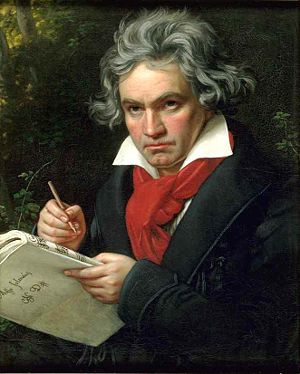

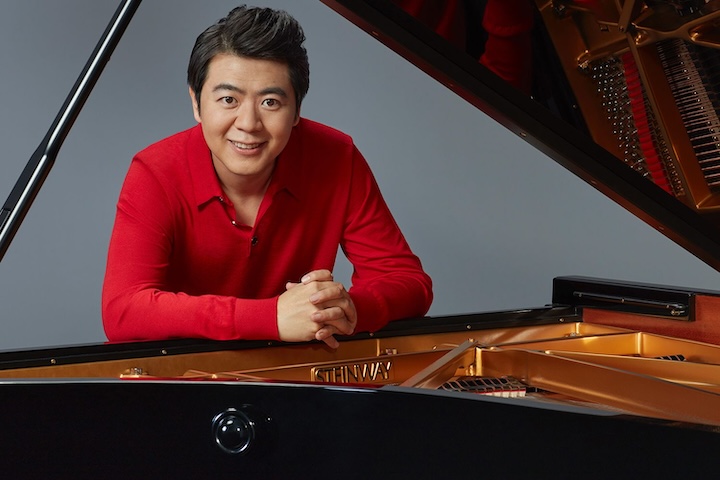
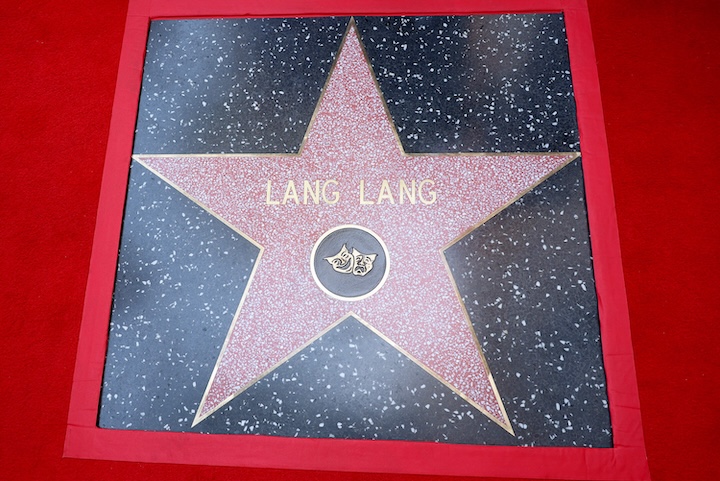
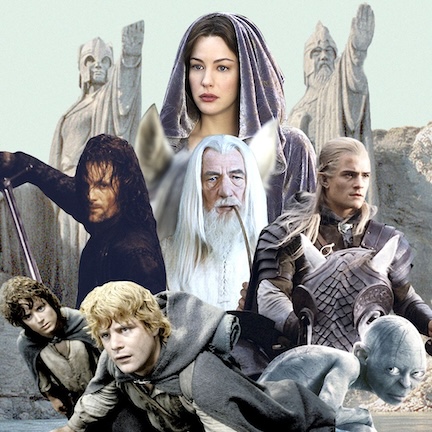
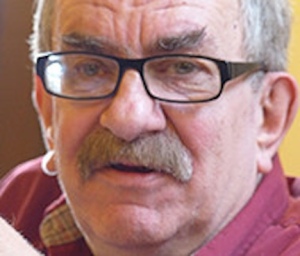

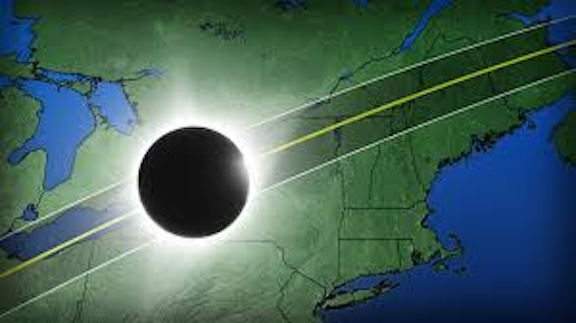

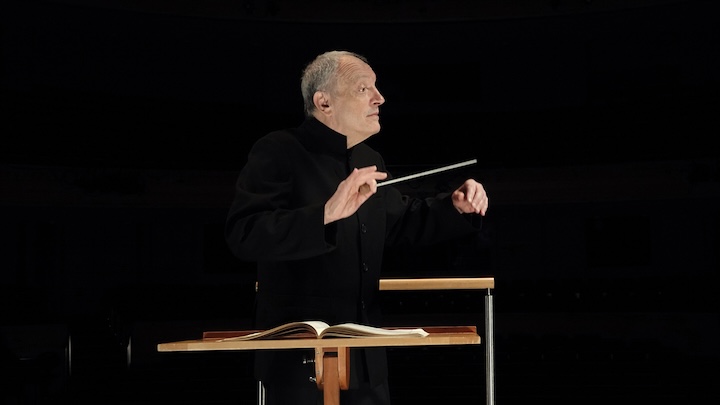
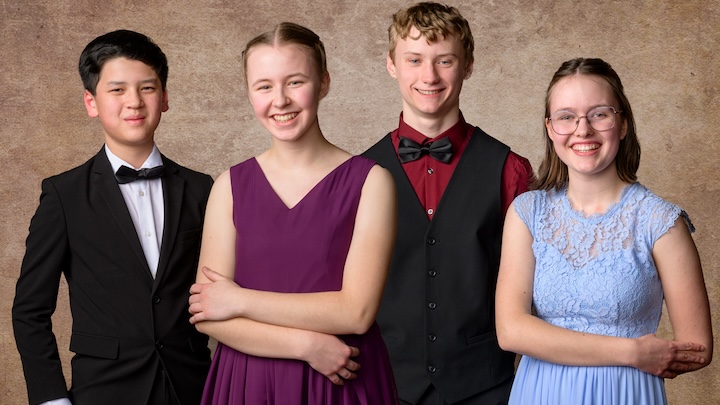

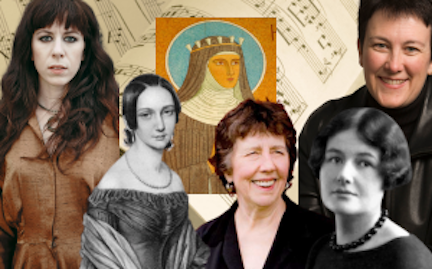



A canceled Russian diva sues the Met. Who should win?
2 Comments
PLEASE HELP THE EAR. IF YOU LIKE A CERTAIN BLOG POST, SPREAD THE WORD. FORWARD A LINK TO IT OR, SHARE IT or TAG IT (not just “Like” it) ON FACEBOOK. Performers can use the extra exposure to draw potential audience members to an event. And you might even attract new readers and subscribers to the blog.
By Jacob Stockinger
Soprano Anna Netrebko — singing in France in 2020 in the Getty Image below and singing the famous aria “Sempre libera” from Verdi’s “La Traviata” in the YouTube video at the bottom — is a world-famous Russian diva and longtime opera star.
But ever since Russia’s war on Ukraine started, she has defended the so-called “special military operation” — complete with war crimes and human right violations — and announced her continuing support for Russian President Vladimir Putin.
Like other nationalistic arts figures who have done the same — including the conductor Valery Gergiev and the pianist Denis Matsuev — her career has suffered as she has seen concert appearances disappear and canceled or withdrawn.
Now she has filed a suit against the Metropolitan Opera and its general director Peter Gelb — whose Canadian wife Keri-Lynn Wilson has conducted tours of the National Symphony Orchestra of Ukraine. Netrebko is seeking $360,000 in damages and restoration of her fees for her upcoming cancelled performances.
Here is a story with the basics: https://www.bbc.com/news/world-europe-66413874
And here is a blog column by lawyer and Georgetown University professor Jonathan Turley (below) — a well-known legal analyst with a large public reputation for television and radio commentaries.
He supports Netrebko’s lawsuit in the name of free speech and artistic expression. He argues against cancelling her appearances and withholding payment because contracts have already been signed. And he compares such sanctions to loyalty oaths.
What do you think about artistic performances being canceled because the artist supports Russia’s war on Ukraine and Vladimir Putin?
Should athletes who act similarly be barred from competition, including the upcoming summer Olympics?
Do such cancellations fall under the heading of justified sanctions or illegal broken contracts?
Who do you think should win the lawsuit?
The Eat wants to hear.
Share this:
Tags: #BlogPost, #BlogPosting, #FacebookPost, #FacebookPosting, #YouTubevideo, analyst, Anna Netrebko, aria, artist, artistic, Arts, athletes, attorney, audience, bar, blog, Canada, Canadian, cancel, cancel culture, career, choral music, Classical music, commentary, Competition, Concert, conductor, contract, damages, defend, Denis Matsuev, diva, expression, Facebook, fee, freedom of speech, General director, Georgetown University, human rights, husband, Jacob Stockinger, Jonathan Turley, Keri-Lynn Wilson, La Traviata, law, lawsuit, lawyer, link, longtime, loyalty oath, Metropolitan Opera, Music, Musician, National Symphony Orchestra of Ukraine, nationalistic, Olympics, opera, Orchestra, Peter Gelb, Pianist, Piano, professor, public, Putin, Radio, reputation, Russia, Russian, sanctions, Sempre Libera, share, sing, singer, solo, soprano, special military operation, star, sue, suffer, suffering, summer, support, symphony, tag, Television, The Ear, the Met, truth, TV, Ukraine, Ukraine National Orchestra, Valery Gergiev, Verdi, violations, Vladimir Putin, vocal music, war, war crimes, wife, win, Wisconsin, YouTube